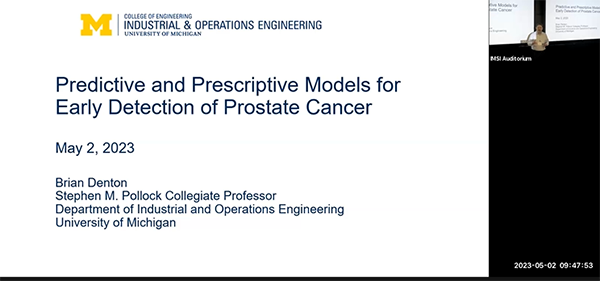Abstract
This presentation will describe opportunities for using a fusion of data-analytics and operations research approaches to improve clinical decisions in the context of prostate cancer. First, the presentation will cover predictive models for estimating the probability of cancer outcomes using individualized patient information like biomarker data and tumor pathology. A semi-supervised machine learning approach for selecting models that tradeoff the competing harms of false-positive and false-negative outcomes will be presented, and the results of the implementation of the models in a large urology collaborative will be used to illustrate the real-world impact such models can have in medicine. Second, the presentation will cover an approach for estimating hidden Markov models that describe the stochastic nature of prostate cancer progression and uncertainty in diagnostic test outcomes. Finally, the hidden Markov models will be used as the foundation for a partially observable Markov decision process to optimize sequential medical decisions for active surveillance of prostate cancer. Although this presentation is in the context of prostate cancer, many of the topics discussed are adaptable to other diseases and other types of systems outside of healthcare, where sequential decision-making under uncertainty and ambiguity is necessary.
